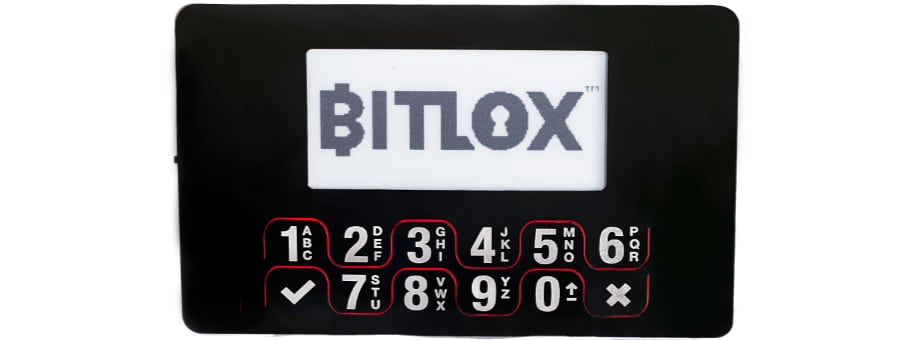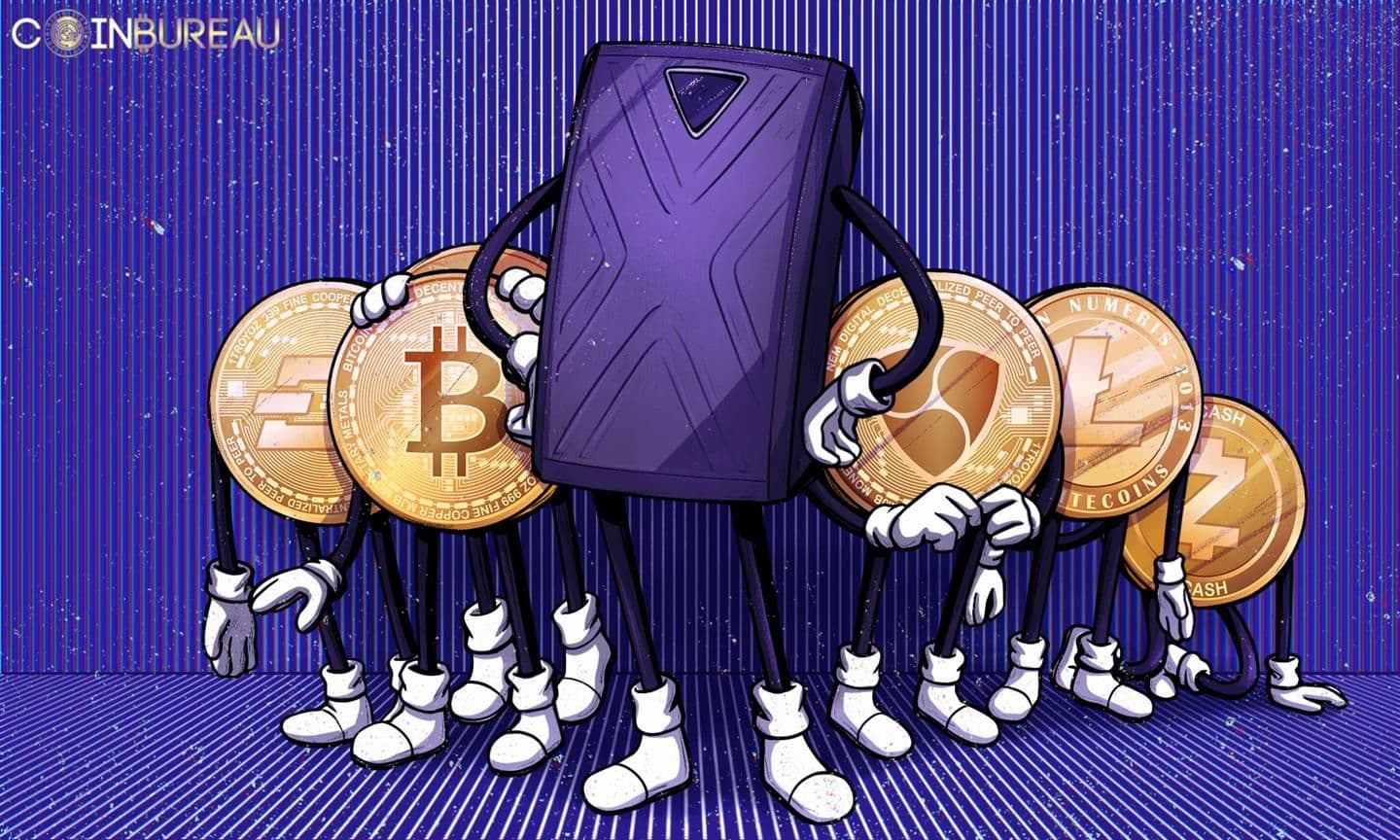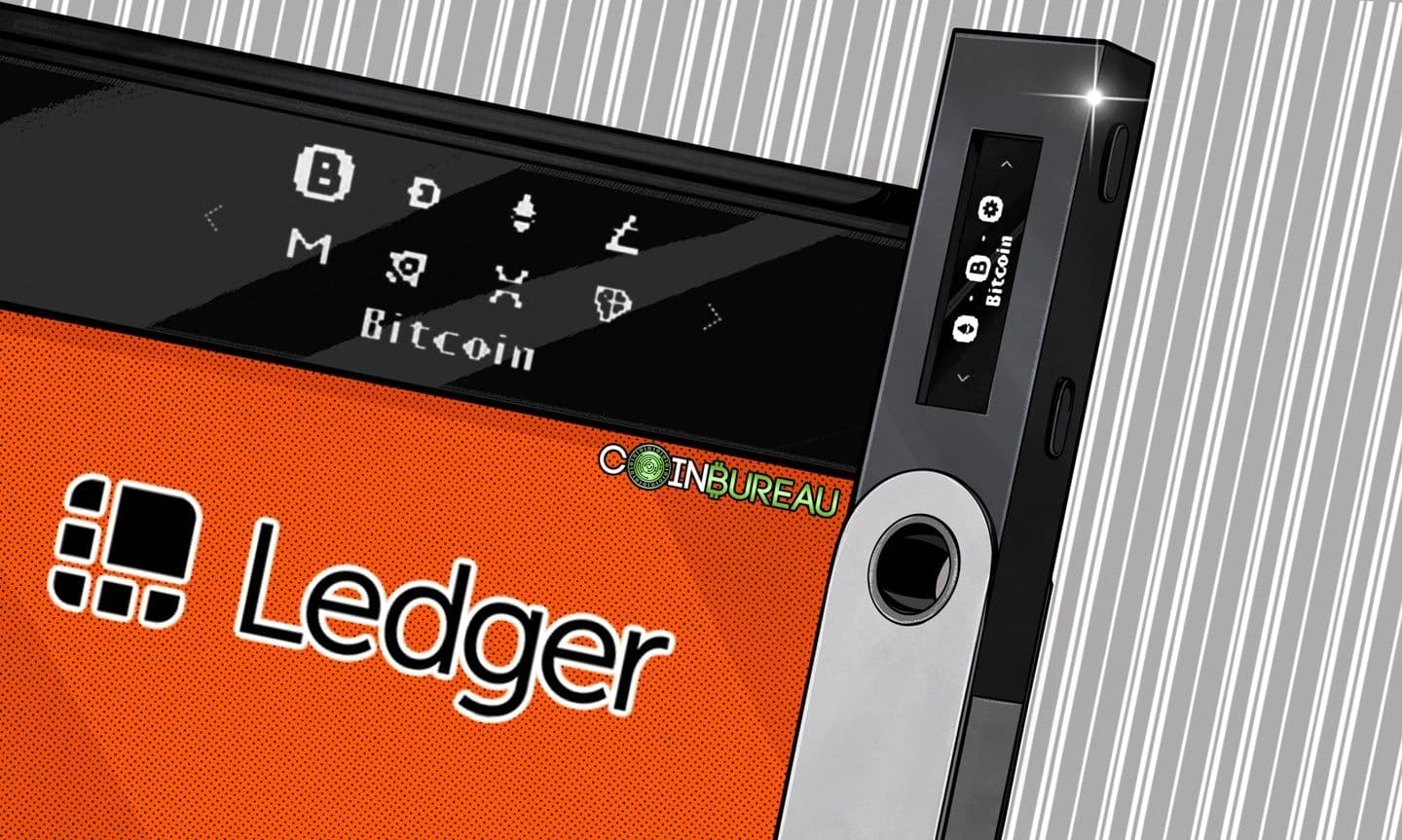BitLox is a hardware wallet that was designed to provide the best security possible for Bitcoin holdings.
Indeed, if you consider the physical makeup of the wallet it is that, since the case is practically indestructible, formed from titanium and aerospace alloys. The BitLox can also generate as many as 100 wallets, and 50 of these can be hidden wallets that can only be unlocked by inputting the wallet number and a special PIN for that individual wallet.
Of course, can the Bitlox really compete with the likes of Ledger and Trezor?
In this Bitlox review, I will take an in-depth look into the wallet including its security, usability and community reputation. I will also give you some top tips as to how you can safely and securely use your Bitlox wallet to secure your coins.
What is Bitlox?
As mentioned, BitLox is a hardware wallet. This means that you will use it to store your cryptocurrency private keys in a secure offline environment away from the risk posed by hackers. The company has been around since at least 2014 and is based in Hong Kong (BitLox Limited).
 The Bitlox Titanium Wallet
The Bitlox Titanium WalletHowever, even though they have been around for quite some time, they are still much less well known than the likes of the Ledger Nano hardware wallet or the Trezor collection. This may be down to the lack of marketing initiatives that the company has been rolling out.
Despite this though, the BitLox wallets perform the same function and can be considered secure. Moreover, the developers have taken the decision to make their software for apps and the hardware device open source and available on their GitHub. This keeps the code in the public eye and allows for more scrutiny.
Available BitLox Models
The Bitlox comes in three different models, depending on your security needs.
- BitLox Advanced: This is the base model of the BitLox. Its case is made from aerospace alloys and it comes with the capability of creating 100 different wallets. Each wallet can have an unlimited number of addresses, making this a perfect way to hide your Bitcoin in a variety of small-ish wallets and addresses. The cost of the BitLox Advanced is $98.
- BitLox Ultimate: The Ultimate differs from the Advanced in the construction of its case, which is made from titanium. Aside from being indestructible it has all the same safety and security features as the BitLox Advanced and costs just $148.
- BitLox Extreme Privacy: This wallet is not only indestructible, but also comes with a military grade USB vault and the TAILS OS preinstalled so you can send and receive Bitcoin with complete anonymity. The Extreme Privacy version of BitLox costs $198.
All three BitLox models come with a full 5-year warranty and can be customized with up to 3 lines of laser engraved text or artwork. This engraving is a nice touch that is not currently an option at any of the other hardware wallets.
BitLox Compatibilities
The BitLox is designed to work with all major operating systems. It is compatible with Windows, Mac OS, Linux and the Android mobile operating system. Users can also download a Chrome extension for the BitLox.
In addition to the support for major operating systems the BitLox also has support for 10 different languages:
- Chinese
- Czech
- English
- French
- German
- Italian
- Portuguese
- Russian
- Spanish
- Turkish
When it comes to support for altcoins BitLox is behind its competitors. I was quite disappointed to see that currently (March 2019), it is only useful for storing Bitcoin. However, the website claims support for Ethereum and ERC-20 altcoins is on the way.
BitLox Security
Security is the best feature of the BitLox and the reason why you would want to use BitLox over other hardware wallets. It complies with both BIP32 and BIP39 protocols, and is a fully hierarchical deterministic wallet with the ability to use up to a 24-word mnemonic code.
Unlike other hardware wallets a PIN is required to unlock the device, and then a second PIN is required to unlock each individual wallet. You can even set PINs down to the transaction level.
Note ?: For those of you privacy hawks, you can even order the BitLox wallet through their Tor hidden service: bitlox2twvzwbzpk.onion/
The BitLox has three levels of built-in security:
- Standard: A 12-word mnemonic is generated for the wallet, as well as a 4-8 digit PIN.
- Advanced: An 18-word mnemonic is generated and you can create your own PIN that contains up to 20 characters. In addition there are other advanced “anti-device tampering” methods, such as the AEM, or “Anti Evil Maid”.
- Expert: Creates a 24-word mnemonic recovery phrase and a PIN is required for each transaction.
While all of these features are great, the wallet can become overwhelming for new users. It’s recommended anyone new to the BitLox begins with Standard security until they become more familiar with the additional security features.
BitLox Team & Development
 Dana Coe. Source: Vimeo
Dana Coe. Source: VimeoBitLox was created in Hong Kong and the company remains based there. They were initially focused on services for cryptocurrencies and financial products, but have become solely focused on the BitLox hardware wallet. The CEO and founder of BitLox is Dana Coe, who also helped create the cryptocurrency Aureus.
Prior to working on BitLox and Aureus, Dana was the owner of DLC science which manufactures and markets educational equipment for schooling. He also worked for a Marketing company called Heavy Hammer prior to his role at DLC. Exactly how he progressed from educational programmes and marketing into crypto security is anyone's guess.
There is no other information about anyone else who works for the company on their website. Having said that, given that the source code has been made public, the code has been maintained and updated by other members in the BitLox community. The last update to the repository was on the 28th of Jan 2019.
Customer Support
Support for the BitLox can be contacted via email and by phone, which is quite unusual for cryptocurrency related companies. You can also find the detailed user manual and a handful of videos about setting up and using the BitLox on the website.
All of these videos appear to have been done by Dana himself but are pretty clear and concise. He will take you through setting up the wallet, sending transactions, expert transaction mode and of course accessing your hidden wallets.
Finally, if you are unable to get through to anyone on the contact form or the phone number then you can always reach out to them on their social media accounts. Bitlox runs a Twitter account as well as Facebook. Both of these appear to be pretty active.
TAILS on Tor Support
BitLox was the first hardware wallet to provide support for TAILS when connected to the Tor network. With version 3.0 of TAILS support was added for Trezor using the Electrum wallet in TAILS, but this remains somewhat difficult without advanced knowledge of cryptocurrency wallets.
If you aren’t interested in creating a USB drive with TAILS installed, BitLox is the only hardware wallet with TAILS pre-installed. Very handy for those concerned with their privacy.
Conclusion
While the BitLox hardware wallet might be the most secure way to hold Bitcoin, the wallet can be quite complex to set-up and leaves many chances for a user to lose or forget their seed phrases and PINs. Users just getting started with the BitLox would be wise to stick to Standard mode until they are comfortable with all the features offered by the BitLox.
Once you become comfortable with the set-up and usage of the wallet it is a very good experience. User have also commented on the BitLox screen, which displays your public address and QR code when not in use, making it easy to receive payments from those physically present.
The construction is top in its class, and since BitLox has gone open-source there’s another complaint about the wallet gone. In fact, it’s an improvement on Ledger, which hasn’t gone open-source due to NDA agreements with some suppliers.
While new users might struggle with some of the advanced features, veteran cryptocurrency wallet users will certainly appreciate the addition of TAILS, Tor support and i2p support.
The fact that every BitLox comes with a five year guarantee is also a plus, but considering their construction a 50 year guarantee might be better.



